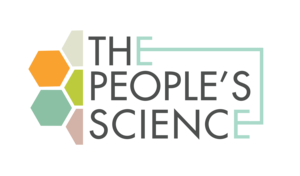RESEARCH ON SCIENCE OF SCIENCE COMMUNICATION
This is a list of specialized organizations and research articles focused on research related to science communicaiton.
Know of a resource you'd like to see added to this list? Submit here.
ORGANIZATIONS
Below are select peer-reviewed articles related to science communication, outreach, and scientist's understanding of the public.
Note: To abide by copyright laws, we cannot post downloadable .pdfs of articles at this time. If you are interested in a particular article and do not have access through the journal, we recommend contacting the corresponding author directly.
Know of an article you'd like to see added to this list? Email us here.
2015
Geoengineering and Climate Change Polarization:
Testing a Two-Channel Model of Science Communication
Author(s):
Dan M. Kahan | @cult_cognition
Hank Jenkins-Smith | @jenkinssmith
Abstract:
We conducted a two-nation study (United States, n = 1500; England, n = 1500) to test a novel theory of science communication. The cultural cognition thesis posits that individuals make extensive reliance on cultural meanings in forming perceptions of risk. The logic of the cultural cognition thesis suggests the potential value of a distinctive two-channel science communication strategy that combines information content (“Channel 1”) with cultural meanings (“Channel 2”) selected to promote open-minded assessment of information across diverse communities. In the study, scientific information content on climate change was held constant while the cultural meaning of that information was experimentally manipulated. Consistent with the study hypotheses, we found that making citizens aware of the potential contribution of geoengineering as a supplement to restriction of CO2 emissions helps to offset cultural polarization over the validity of climate-change science. We also tested the hypothesis, derived from competing models of science communication, that exposure to information on geoengineering would provoke discounting of climate-change risks generally. Contrary to this hypothesis, we found that subjects exposed to information about geoengineering were slightly more concerned about climate change risks than those assigned to a control condition.
2014
The science of sharing and the sharing of science
Katherine L. Milkman | @katy_milkman
Abstract:
Why do members of the public share some scientific findings and not others? What can scientists do to increase the chances that their findings will be shared widely among nonscientists? To address these questions, we integrate past research on the psychological drivers of interpersonal communication with a study examining the sharing of hundreds of recent scientific discoveries. Our findings offer insights into (i) how attributes of a discovery and the way it is described impact sharing, (ii) who generates discoveries that are likely to be shared, and (iii) which types of people are most likely to share scientific discoveries. The results described here, combined with a review of recent research on interpersonal communication, suggest how scientists can frame their work to increase its dissemination. They also provide insights about which audiences may be the best targets for the diffusion of scientific content.



